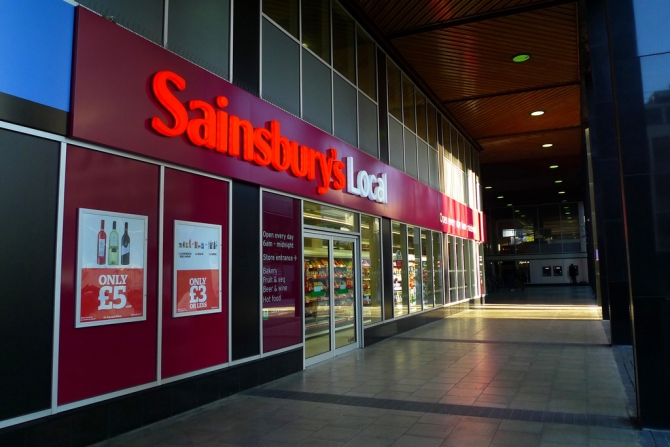In the battle of the supermarkets, Tesco’s top spot is increasingly under challenge from budget brands such as Lidl and Aldi and by its main competitor, Sainsbury’s. However, it appears that the UK’s largest chain may have some breathing space in the coming quarter as it emerges that Sainsbury’s sales have fallen for the first time in nine years.

In the ten weeks to the 15th of March, Sainsbury’s experienced a dip of 3.1 per cent in like for like sales excluding fuel – something it has largely put down to the unseasonable weather experienced across wide parts of the UK and also the timing of Easter distorting comparisons. Furthermore, as Sainsbury’s was one of the only supermarkets in the UK not implicated in the horse meat scandal, the sales period over the last 10 weeks faced an incredibly tough challenge to top the sales recorded this time last year.
Yet, over and above these issues, the brand points out that there has been a general slowdown in the grocery market as a whole; it is currently growing at its slowest pace since 2005 as a result of a plunge in food prices. While this last point may be good news for cash strapped consumers, it is expected to intensify the rivalry amongst supermarket chains seeking to widen their customer bases.
Justin King, chief executive of the brand, expressed the belief that economic improvements are still to be felt by consumers in real terms – an opinion backed up by a Cost of Living survey conducted by ComRes for BBC Breakfast. It found that seven in 10 consumers remain concerned about their financial situation, with only three in 10 expecting their circumstances to improve in the next 12 months.
Mr King said; “Although some economic indicators are showing an improvement in the health of the economy, we expect the outlook for customers to continue to be challenging for the coming year.
“Of course [this result] is disappointing, but it has to be put in context.”
Despite the contraction in sales, the news contained in the report was actually fairly positive on the whole. Sainsbury’s managed to maintain a market share of 17 per cent which, considering rival chains are steadily losing out to discounters is fairly impressive.
In addition, non-food categories and own brand products performed admirably. All of the group’s own brand ranges outsold branded products while menswear sales increased by 23 per cent year on year. As a result, Mr King believes Sainsbury’s will continue to grow and will outperform its competitors throughout the rest of 2014.
While Sainsbury’s can no longer build upon the 36 consecutive quarters of like for like sales growth, and will lose Mr King in July, it seems that consumers are still interested in what Sainsbury’s has to offer. However, with both Asda and Tesco pledging to dramatically drop prices in the coming months, it remains to be seen whether the market share statistics remain weighed in Sainsbury’s favour this time next year.
Do you think market share is a better indicator of performance than like for like sales in the supermarket category?